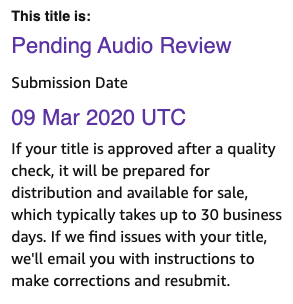Raw(with my repeats and the dog clicker) WAV
That’s the hero one. That will prevent you from digging out the microphone and announcing everything again if Audacity goes into the dirt. Park a copy of that one on a thumb drive or second drive or service.
Mastered (Front and Back Room Tone, LFRolloff, RMSNormal, Limit) WAV
and then the Encoded MP3s.
Ditto with that one, or at least the WAV. You can’t edit the MP3 without causing sound damage. If a simple change is needed and the Edit Master Project won’t open, edit the Master WAV, save that and Export a fresh MP3.
The ones in the middle are optional. You can reconstruct your whole world from Raw and Edit Master if you have to. Just so we’re clear, you’re continuing to edit the Project as you go, right? You take occasional side trips to make the WAV’s.
There is another option. You can also save a special Project. File > Save Project > Save Lossless Copy.
That will save a slightly more perfect version of the show, but it does it in Audacity-ish format (AUP file and _DATA folder) at over twice the data size. Pay attention, it may not have the same save location as the other formats.
How long should a short work take to go through ACX audio review (Is it really 30 days)?
Everybody with a pulse and respiration is trying to read for audiobooks. OK, I’m not. But I’m the only one. ACX recently changed their acceptance process, so they have corporate inertia on top of everything else.
If you submitted a test, was it 1 to 3 minutes or 15 minutes? The new process requires a fifteen minute reading. It’s a lot harder to fake your way through a fifteen minute performance than the older short reading.
It’s been about five to ten days, but it depends entirely on their workload. Where did you hear 30 days?
Side note. Were you able to pass ACX Check just by reading, cutting and applying Audiobook Mastering Suite? I know it can be done. I can do it. But many home performers get stuck with houses a lot noisier than they think.
Koz


